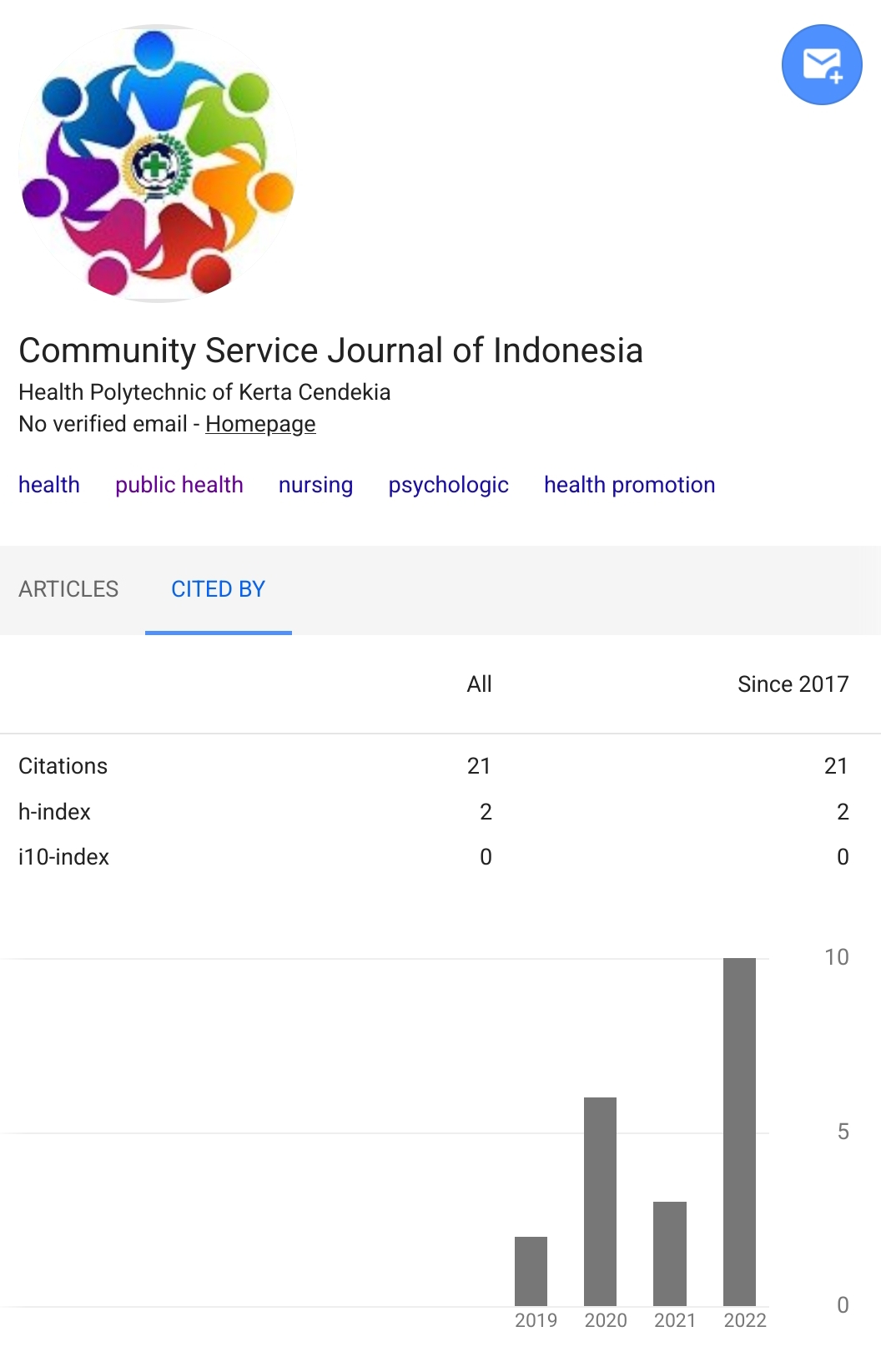IMPROVED KNOWLEDGE OF FIRST AID IN CHOKE
DOI:
https://doi.org/10.36720/csji.v1i2.135Abstract
Health promotion activities about the first handling of choking in the Rangkah Kidul Elementary School, Sidoarjo is one form of community service in the form of counseling aimed at increasing children's knowledge about how to handle choking events which are events that often occur to cause death. The implementation of these activities on November 13, 2019 took place at the Rangkah Kidul Elementary School, Sidoarjo. The target is elementary students in Rangkah Kidul, Sidoarjo. Before the activity is carried out, there is a process of compiling the activity for approximately 3 weeks before the activity is carried out, starting from determining the theme of counseling to submitting permits to the parties concerned. As a form of evaluation, the activity was attended by 33 students and 1 teacher, participants participated in the activity happily and looked very enthusiastic, health promotion activities could run on time and smoothly.
Â
Keywords: Choke, first aid, health promotion.
References
Bagian Diklat RSCM. (2015). Tersedak: Pelatihan Internal RSCM Bantuan Hidup Dasar 2015. Jakarta: Bagian Diklat RSCM.
Pusponegoro, A.D., et al. (2012). Basic Trauma Life Support & Basic Cardiac Life Support. Edisi kelima. Jakarta: Yayasan Ambulans Gawat Darurat 118.
Sumarningsih, D. (2015). Pengaruh Edukasi Keluarga Tentang Pencegahan Dan Penanganan Tersedak Pada Anak Terhadap Pengetahuan tersedak. Retrieved from http://opac.say.ac.id/201/1/NASKAH%20PUBLIKASI.pdf on October 9, 2019.
Tim Bantuan Medis BEM IKM FKUI. (2015). Modul bantuan hidup dasar dan penanganan tersedak. Jakarta: Universitas Indonesia.
Utami, D. S. (2014). Teknik Mencegah Bayi Tersedak Pada Ibu Menyusui Di Puskesmas Pembantu Desa Demung Besuki Situbondo. KTI D3 Kebidanan.
Downloads
Published
How to Cite
Issue
Section
License
Authors who publish with Community Service Journal of Indonesia agree to the following terms:
- Authors retain copyright licensed under a Creative Commons Attribution-NonCommercial 4.0 (CC BY-NC 4.0), which allows others to remix, tweak, and build upon the authors' work non-commercially, and although the others' new works must also acknowledge the authors and be non-commercial, they don't have to license their derivative works on the same terms.
- Authors are permitted and encouraged to post their work online (e.g., in institutional repositories or on their website) prior to and during the submission process, as it can lead to productive exchanges, as well as earlier and greater citation of published work (See The Effect of Open Access). Authors can archive pre-print and post-print or publisher's version/PDF.














